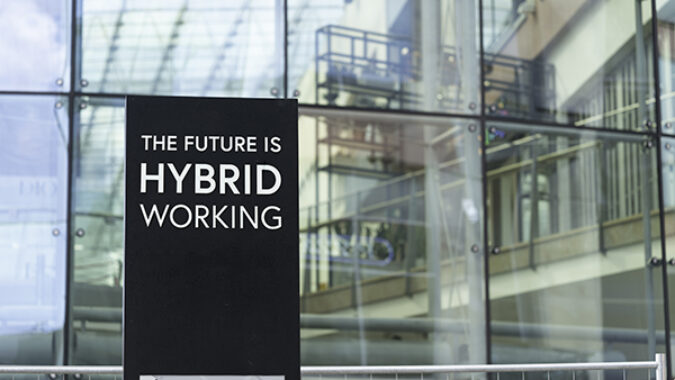Business leaders will have to radically rethink company culture – the underlying mindset of how employees interact with one another – if they want to successfully implement hybrid work models that include on-site and remote employees, experts at a top management consulting firm say.
Bryan Hancock, a McKinsey & Company partner based in Washington D.C., noted in a recent “McKinsey Talks Talent” podcast that while some leaders are reimaging what company culture will look like in a primarily hybrid world, others think everyone must be back on site to preserve the old culture.
“But you can’t assume you’ll return to the same culture that existed pre-pandemic,” Hancock said. “There’s been too much change, both at the individual level and at the business level.”
Bill Schaninger, a McKinsey & Company senior partner based in Philadelphia, said that when work was done remotely during the pandemic, the focus was “employee first” just to get the work done. Now as more businesses move toward a hybrid model, it is important to recreate company culture to focus on overlapping an individual’s purpose with the purpose of the organization.
“Every moment you spend working is a moment you’re not spending with a child, with a parent who needs care, with your partner. Now a lot of employees are asking, ‘Does this job work for me? Do I care at all about what I do for a living?’” Schaninger said. “Increasingly, the bar is rising, and people are saying, ‘My work has to be more than a job. It has to fit in with my life’s purpose.’
“That creates an interesting opportunity for employers to help people figure out what really matters to them, help them find more purpose in what they do,” Schaninger said. “If they can’t, maybe we help them gracefully leave. But if they can, there are obvious benefits: retention, motivation, satisfaction, engagement, productivity—all of it goes through the roof.”
Hancock said research shows that during the pandemic communication and connectivity increased within immediate teams, but linkages across teams within an organization declined significantly. This means it is critically important for managers to prioritize communicating across teams to keep driving innovation in hybrid workplaces.
Brooke Weddle, a partner in the McKinsey Washington, D.C. office, said business leaders who set “office-first” policies with workers reporting on-site on different days of the week should be aware of the negative impact that may have on collaboration.
“Suppose my team wants to work together, but I’m going back to the office Tuesday and Thursdays and others are going back Mondays, Wednesdays and Fridays,” Weddle said. “We’ll never have those interactions.
“Going in for the sake of going in – I think those days are over,” Weddle said. “People can be wildly productive at home. We have to have people back for a specific purpose and drive toward a specific outcome.”
Schaninger said business leaders should embrace the opportunity for cultural change that the new hybrid model of work offers.
“This is an unbelievable opportunity to remake culture,” Schaninger said. “It’s rare in a leader’s lifetime to have such a clean drop for reshaping how you run the place.”

